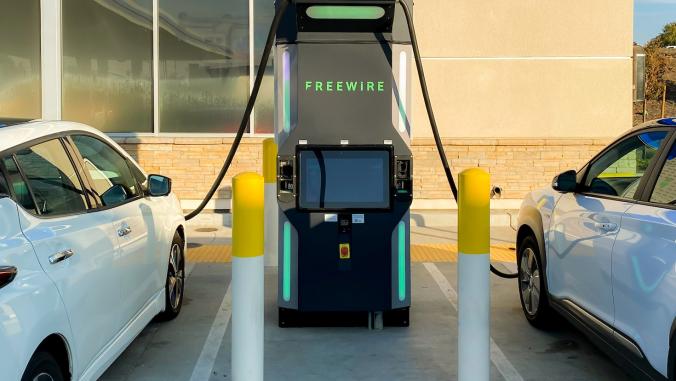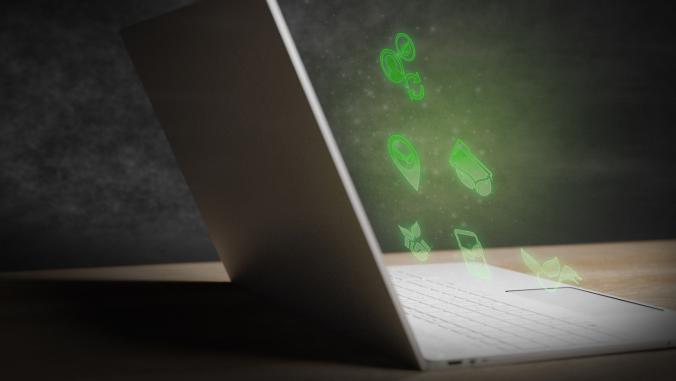United Airlines is doubling down on a still-nascent path to decarbonizing its operations — sustainable aviation fuel.
Through a new partnership with some of the country’s largest corporations, the Eco-Skies Alliance, United will triple its use of sustainable aviation fuel this year.
"This demonstrates really incredible market leadership, but we need sustainable aviation fuel to be the norm, not the exception," said Lauren Riley, United’s head of global environmental affairs and sustainability.
Indeed, the alliance will help United purchase 3.4 million gallons of the sustainable fuel this year with funds from corporate partners that rely heavily on business travel.
That’s still a drop in the proverbial bucket of 4 billion gallons of jet fuel the airline consumes annually, but Riley sees this as just the start. United is actively courting more of its corporate and cargo customers to join the alliance and purchase more of the sustainable fuel, which can cost two to four times as much as conventional jet fuel.
Right now, Riley said, the important thing is sending a message that sustainable aviation fuel is the future. Made from waste oils or even household trash, sustainable aviation fuel boasts an 80 percent emissions reduction over the fuel’s lifecycle, according to United, compared with conventional jet fuel.
"If there's not this demand signal for alternative fuels, the industry may not actually tip in the direction of these decarbonized solutions," Riley said.
The Eco-Skies Alliance is made up of more than a dozen American companies, including Nike, HP Inc., Deloitte and Siemens, that will collectively purchase the alternative fuel to support their employees’ business travel. It’s enough fuel to power 220 million miles of passenger flights and eliminate 31,000 metric tons of greenhouse gas emissions, according to United. It mirrors a similar program launched this week by the Environmental Defense Fund, the Sustainable Aviation Buyers Alliance, that includes other major companies such as JPMorgan Chase, Microsoft and Netflix.
Through this new partnership with some of the country’s largest corporations, United will triple its use of sustainable aviation fuel this year.
Riley said the Eco-Skies Alliance has been in the works for close to two years, and grew out of corporate customers’ desire to reduce their travel emissions. Although the pandemic virtually wiped out business travel, Riley said corporate partners remained committed to the idea — especially as many businesses begin to mull a return to the office.
"[The pandemic] really did not shift passion, interest, curiosity about, how do you decarbonize a very hard-to-abate industry like aviation?" Riley said.
Autodesk, a software company that’s also part of the alliance, saw the United investment as a "perfect opportunity" to reduce its own carbon footprint from air travel as it seeks to reach net-zero emissions in the fiscal 2021 year.
"We hope that Autodesk’s investment, along with the other corporate partners, will further drive decarbonization within the airline industry," Claire FitzGerald, sustainability manager at Autodesk, wrote in an email.
Autodesk’s commitment to emissions reduction goes back to 2009, making it one of the first in its industry to set such a target, long before they became common in corporate America.
"Autodesk has historically had a large business travel population," FitzGerald said, but the company’s emissions from travel dropped 75 percent in 2020, largely due to COVID travel restrictions. As employees begin to return to air travel, Autodesk is integrating emissions data into its online booking system to give employees a better sense of their climate impact.
According to Riley, corporate interest and willingness to pay to reduce emissions helps combat the financial challenges of sustainable aviation fuels. In a year of pandemic travel restrictions that decimated airline finances, United would have had a hard time investing in the more expensive, alternative fuel on its own, Riley said.
"It’s a very difficult time to have discretionary spending on items like that," Riley said.
United is also giving its retail customers an opportunity to contribute. Passengers will have the option to put money toward sustainable aviation fuel when they book a flight. And the company is prodding its customers to engage in political advocacy by providing an email template that urges elected officials to support the development of sustainable fuels. Riley said 2,000 customers have used the letter in the past week.
While sustainable fuel is an important piece of United’s strategy, it is not the company’s only path to zero-ing out emissions from flying.
"It’s a bit of an all things on the table strategy right now, because there is no silver bullet," Riley said.
United is decidedly not planning to rely on carbon offsets to achieve its goal of reducing greenhouse gas emissions 100 percent by 2050. Instead, the airline is investing in electric aviation, direct air carbon capture and the accelerated development of sustainable fuels.
"It’s about taking action, not rhetoric, when it comes to the climate," Riley said.
Correction: A previous version of this article said the Alliance was made up of 11 companies. The Alliance has over a dozen partners.






